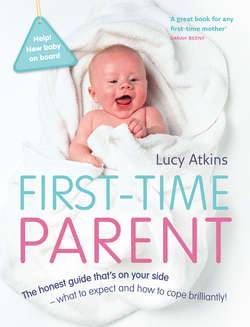Читать книгу First-Time Parent: The honest guide to coping brilliantly and staying sane in your baby’s first year - Lucy Atkins - Страница 58
What to do when you get home
Оглавление‘The whole world feels fragile now, as if I were carrying my heart around,’ says Melissa, mother of Raphael, nine months. If this throws you into a tizzy for the first few weeks, you’re not alone. ‘I felt total panic at home with my new baby,’ says Julia, mother of Charlie, one. ‘He seemed so fragile and the sense of responsibility was just overwhelming. Instead of gazing at my baby in this bubble of maternal love, I just kept thinking, He’s so important, what if something happened to him?’
Not everyone feels worried. But if you do, the anxiety should subside once you get to know your baby a bit and gain confidence. If it doesn’t, it’s important to talk to your midwife or health visitor about how you feel (excessive anxiety, apart from being distracting, can be a sign of postnatal depression).
The main thing is to get to know your baby. ‘He didn’t come with any instructions and I couldn’t speak his language,’ says Lori, mother of Jacob, two. ‘I felt like I was failing all the time.’ Be kind to yourself here. You will slowly learn–your way–that he won’t break if you put his nappy on wrong, or explode if you take too long to do his poppers up (though he may shout a lot). He doesn’t have some pre-programmed need to be held or spoken to in the ‘right’ way, and he doesn’t know any better than you do how he should be bathed or fed. The right way, in short, is your fumbling, inept, loving and slowly evolving way.
